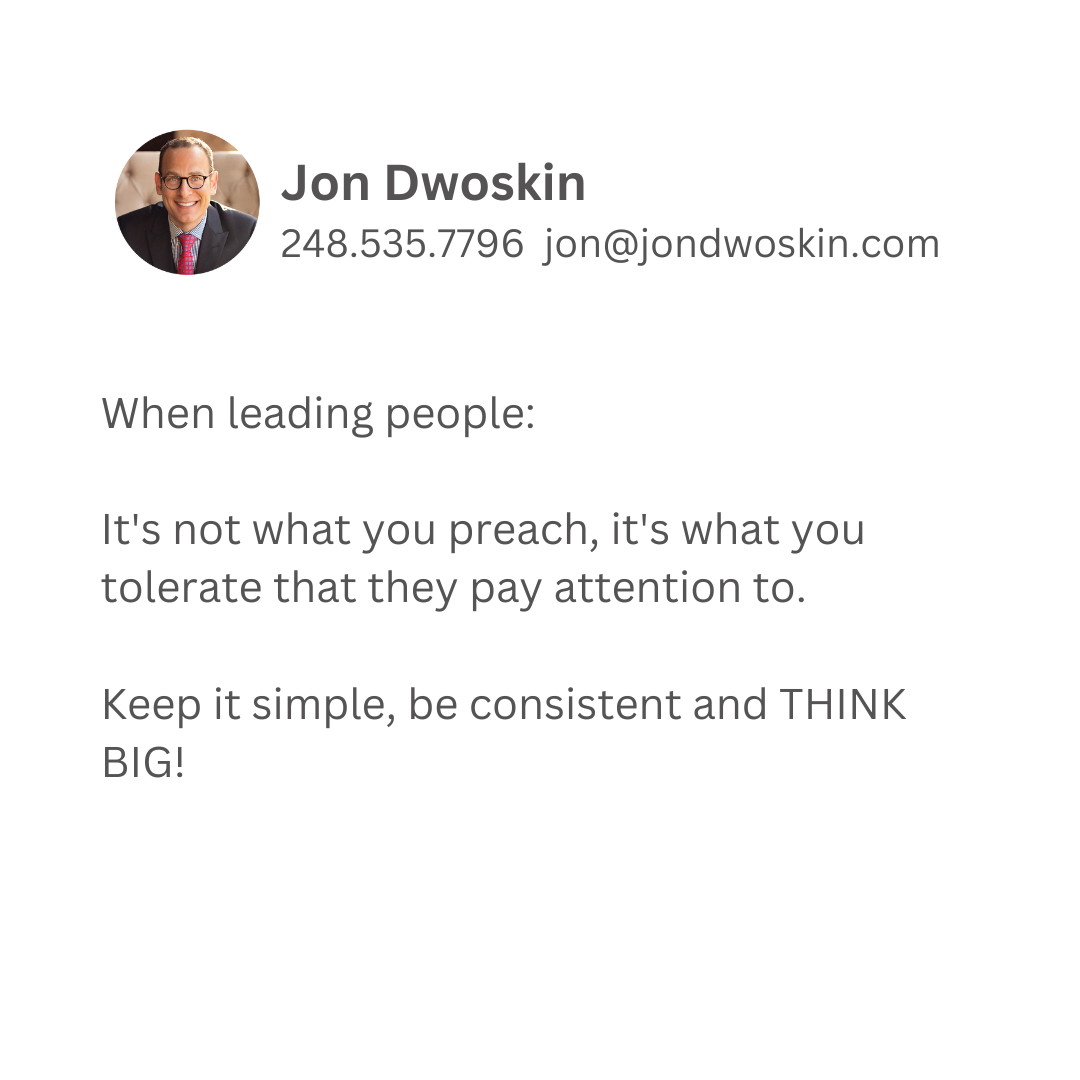

“It’s not what you preach, it’s what you tolerate that they pay attention to.” This statement holds a mirror up to the reality of many organizations, where the true culture is defined not by the mission statements or the inspirational speeches, but by the everyday actions and behaviors that are allowed to persist.
The Realities of Tolerance in Leadership
In my experience as a business coach, I’ve seen firsthand the critical yet often overlooked aspect of leadership: the profound impact of what we tolerate within our teams. When we fail to address negative behaviors or subpar performance, we inadvertently send a message to our teams. This message is far louder than any formal policy or directive: it says that such behaviors are acceptable. For example, if we tolerate lateness, lack of accountability, or even subtle forms of disrespect, these actions become part of the company’s cultural fabric. Over time, this can erode trust, lower morale, and reduce overall productivity.
The Culture of Complacency
One common scenario I encounter is the culture of complacency. In companies where mediocrity is tolerated, high performers often become disengaged. They see that their extra efforts are not recognized or rewarded, while those who do the bare minimum face no consequences. This can lead to a decrease in motivation and an increase in turnover among top talent. A culture of complacency doesn’t just affect individual performance; it stifles innovation and growth, making the company less competitive in the market.
The Ripple Effect on Leadership Effectiveness
As leaders, if we tolerate undesirable behaviors, we face significant challenges in leading effectively. Our authority and credibility are undermined, making it difficult to enforce rules or inspire our teams. Employees are quick to pick up on inconsistencies, and when we turn a blind eye to problems, we lose respect. This can lead to a lack of cohesion and a fragmented team dynamic, where employees are more focused on navigating the inconsistencies than working together towards common goals.
The Path to Consistency and Big Thinking
The antidote to this issue lies in consistency. “Keep it simple, be consistent and THINK BIG!” We must set clear expectations and follow through with consistent actions. This means addressing issues promptly and fairly, recognizing and rewarding positive behaviors, and creating an environment where accountability is the norm.
Thinking big involves envisioning a culture where every team member is aligned with the company’s values and goals. It’s about fostering an environment where innovation and excellence are not just encouraged but expected. This requires a commitment to continuous improvement and a willingness to make tough decisions for the greater good of the organization.
Transforming Company Culture
Transforming company culture starts with us. We must model the behaviors we want to see and hold everyone, including ourselves, accountable. This can be challenging, especially in the face of resistance or pushback. However, the long-term benefits far outweigh the short-term difficulties. A culture of accountability and excellence attracts top talent, increases employee engagement, and drives better business outcomes.
The impact of what we tolerate cannot be overstated. It shapes the very essence of company culture and directly influences our ability to guide our teams effectively. By committing to consistency and thinking big, we can create a thriving, high-performance culture that propels our company towards sustained success.
THINK BIG!
Jon







